

|
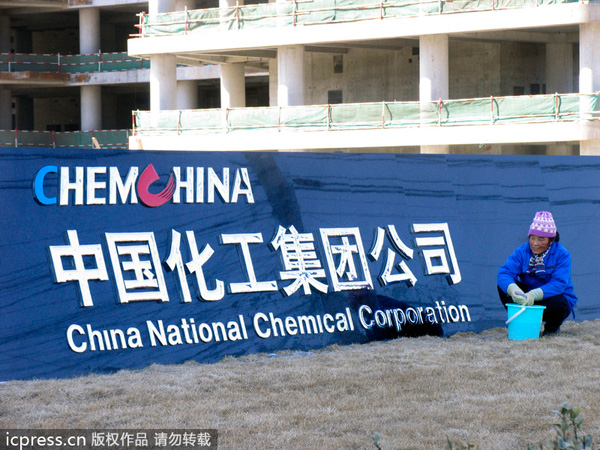 |
|
View of the headquarters of China National Chemical Corporation, known as ChemChina, in Beijing. [File photo/icpress.cn] |
Chemical producers struggling with increasing excess capacity should acknowledge that the fundamentals of the industry have changed, the head of the country's largest chemical producer said.
Instead of continuing to battle for market share, they should work with the government to rationalize the sector through bankruptcies and mergers, letting market forces function.
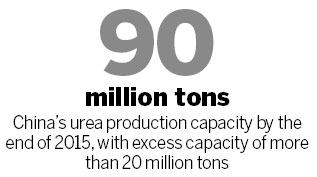 "After years of rapid economic development in China, many industries are burdened with excess capacity just as the government is adjusting the country's economic development model and pace," said Ren Jianxin, president of China National Chemical Corp, the largest in the sector. "The chemical industry is no exception."
"After years of rapid economic development in China, many industries are burdened with excess capacity just as the government is adjusting the country's economic development model and pace," said Ren Jianxin, president of China National Chemical Corp, the largest in the sector. "The chemical industry is no exception."
As the head of ChemChina, as the company is known, Ren believes that enterprises in every sector are facing bigger, stronger competitors, so any particular company can stay profitable only by pursuing a smart strategy.
"Just slicing up a growing pie doesn't work anymore," he said. "You have to sell your pie ahead of your competitors, or 'bake' something that others don't have."
ChemChina has followed the principle of "traditional chemicals, advanced materials" since its foundation in 2004.
Total assets reached 267.4 billion yuan ($43.6 billion) last year, with sales of 201.7 billion yuan.
China's chemical industry has been grappling with overcapacity for a long time. But this year was the sector's toughest in some time.
In the first quarter, prices of chemical products slid, pushing industry profitability to the lowest level since the second quarter of 2009.
A few statistics tell the story. Domestic urea production capacity is 70 million metric tons, but annual consumption is only about 56 million tons, leaving the industry with 20 percent excess capacity.
Things are even worse in the phosphate fertilizer industry, which has an annual production capacity of about 16 million tons but can only sell about 10 million tons of its output in most years, leaving about 37 percent of factories idle.
At a chemical industrial conference where the industry's first-half performance was discussed, Li Yongwu, head of the China National Petroleum and Chemical Confederation, said producers of soda ash, nitrogen fertilizer, ammonium phosphate and calcium carbide all face huge overcapacity problems.
He noted that 19 new urea projects are opening this year, adding about 10.2 million tons of annual production capacity. By the end of 2015, domestic urea capacity will reach 90 million tons, with excess capacity of more than 20 million tons.
All this idle capacity has pushed down prices, profits and production, said Qi Yuqin, a chemical industry analyst at commodity consultancy Sublime China Information Co.
According to SCI, about 140 organic chemicals out of the 160 it monitors have excess supply, five more than last year.
 Hot models shining at Auto Guangzhou 2013
Hot models shining at Auto Guangzhou 2013
 Survey: Big strides in domestic auto quality
Survey: Big strides in domestic auto quality
 Auto Guangzhou witnesses new Porsche sports cars Asia Premiere
Auto Guangzhou witnesses new Porsche sports cars Asia Premiere
 Rise of the south's biggest show
Rise of the south's biggest show
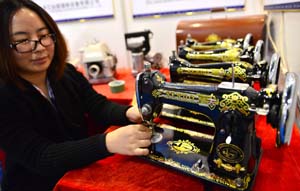 Sew be it
Sew be it
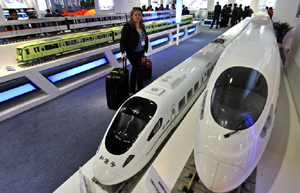 Latest trend in tram
Latest trend in tram
 CCTV 2014 advertising auction kicks off in Beijing
CCTV 2014 advertising auction kicks off in Beijing
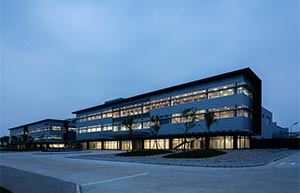 Toyota TMEC opens hybrid tech R&D operations
Toyota TMEC opens hybrid tech R&D operations